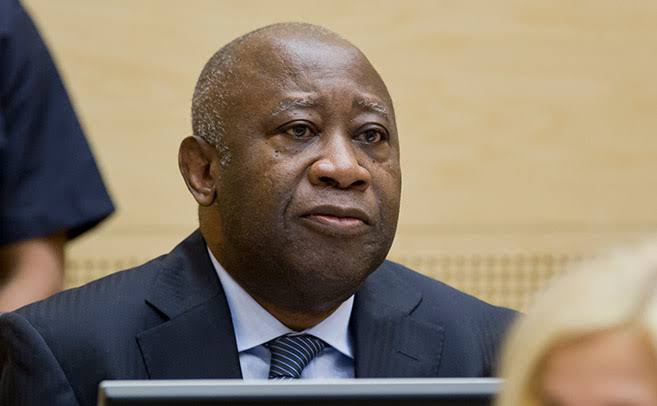The government of the Ivory Coast has said that it opposes former president Laurent Gbagbo’s unconditional release by the International Criminal Court (ICC) because his return would destabilize the west African country.
In a January 21, 2020 filing to judges considering whether Gbagbo should be released unconditionally, lawyers for the Ivorian government noted that the former president had, through his lawyers, expressed his desire to return to his home country.
The government lawyers added that Gbagbo’s return home before judges rule on an appeal against his acquittal would place the Ivory Coast in the same troubled state that motivated the referral of the situation in that country to the ICC. They asked the court not to take that risk.
In January 2019, Trial Chamber I acquitted Gbagbo, but he remains on interim release in Belgium pending determination of an appeal by the prosecutor. His lawyers have appealed for his unconditional release, arguing that imposing the conditions was erroneous as it lacked a legal basis.
Article 81(3)(c) of the court’s Rome Statute provides grounds under which, in case of an acquittal, the accused may not be released immediately if the prosecutor appeals. They include the concrete risk of the accused fleeing, seriousness of the offencse charged, and the probability of success on appeal. In such instances, the trial chamber, at the request of the prosecutor, may maintain the detention of the person pending the prosecution’s appeal.
Gbagbo was charged over the violence that followed a 2010 presidential election, which he lost. Prosecutors charged that he, along with Charles Blé Goudé, his former minister for sports and youth, committed crimes against humanity, namely murder, rape, attempted murder, and persecution, between December 2010 and April 2011. The Ivory Coast will hold presidential elections at the end of this year.
The government’s lawyers said Gbagbo is required to appear before the court during hearings and at all stages of the appeal proceedings. They added that, should Gbagbo be released unconditionally at this stage, his supporters would challenge the Ivorian government’s cooperation with the ICC during the continuation of proceedings against him.
In the appeal for unconditional release, defense lawyers stated that the conditions imposed on Gbagbo have denied him the right to express himself and to participate in political processes, including “participating in one way or another” in an upcoming presidential election in his home country. Gbagbo also said he had been denied a chance to play a role in promoting reconciliation in his country. However, the government’s lawyers countered that there could be no reconciliation without justice. They accused Gbagbo of failing to rein in his close advisers, who they said had referred to the ICC as a political instrument of foreign powers.
The government lawyers also argued that if the court freed Gbagbo and he returned to the Ivory Coast, his supporters could threaten witnesses and victims, and make it difficult for the government to offer protection to the victims and witnesses.
The government lawyers defended the finding by the Appeals Chamber last February that Gbagbo was a flight risk. In that decision, the judges said there was “sufficient factual indication” that Gbagbo and Blé Goudé might abscond if released unconditionally.
Under Rule 119 of the court’s Rules of Procedure and Evidence, judges may set one or more conditions restricting the liberty of an accused person. These include restrictions on movement, barring contacts with certain individuals, requiring the accused to reside at a particular address, and surrender of their passport to the court.
According to the government lawyers, given the prosecution’s appeal, there is a possibility of hearing more witness testimony, convicting Gbagbo, and handing him a heavy sentence. This, according to them, necessitates maintaining the conditions. They added that Gbagbo has political support in different countries and in the Ivory Coast, who openly show their support on social media and in front of the ICC premises. These supporters, argued the government, could aid his flight.
ALL AFRICA
